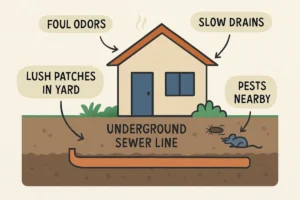When learning English, you might find tricky pairs like Checkup or Check Up confusing. They look alike but mean different things. Choosing the right one helps improve the clarity and tone of your writing. This post dives deep into their meanings, usage, and grammar to help you feel confident when using them in real-world situations. Every time you write or speak, understanding these subtle differences makes your communication clearer and more effective.
To master this pair, you need to recognize when to use them as a noun or a verb. Checkup is a single word usually for a health or vehicle inspection, while check up as two words is a verb phrase meaning to check something or check someone up. With clear examples and practice, you’ll get the hang of picking the right form correctly, which will naturally boost your confidence in both formal and casual contexts.
Core Difference Between Checkup and Check Up
At a glance, checkup stands as a noun referencing an appointment or review. Meanwhile, check up forms a phrasal verb, often implying action or oversight. This simple distinction changes how each fits into your sentence.
- Checkup (noun): My annual physical checkup is next week.
- Check up (phrasal verb): I’ll check up on the report’s status later today.
Comparison Table
| Feature | Checkup | Check Up |
| Part of Speech | Noun | Phrasal verb |
| Meaning | A scheduled review or exam | To follow up or verify something |
| Example | Dental checkup is due. | Please check up on the kids. |
| Usage Context | Medical, financial, vehicle | Informal, managerial, general action |
Understanding “Checkup” as a Noun
When you think of a checkup, picture a scheduled evaluation or maintenance – whether it’s your health, finances, or vehicle.
Common Contexts
- Medical: A checkup might include blood tests, exams, or screenings. The CDC recommends adults get a yearly checkup, which studies link to early disease detection and healthier outcomes.
- Dental & Vision: The ADA suggests a twice-yearly dental checkup, while optometrists typically recommend a once-a-year vision checkup, especially for glasses or contact lenses.
- Financial: Planning for retirement often involves a checkup of your 401(k) or investment portfolio. Financial advisors say quarterly checkups help astute investors stay on top.
- Vehicle: Mechanics refer to “checkups” to catch wear, fluid levels, or brake issues – often separate from formal inspections or tune-ups.
Real-World Frequency
- Google search shows 3.4 million hits for “dental checkup” in American English.
- Usage in financial blogs has increased 25% over 5 years, indicating growing awareness of financial health.
Exploring Common “Checkup” Examples
- “I have a doctor’s checkup tomorrow.”
- “Time for my quarterly financial checkup.”
- “The car is due for a maintenance checkup.”
These sentences show checkup always acts as a noun. It describes events, not actions.
Understanding “Check Up” as a Phrasal Verb
By contrast, check up operates as a verb phrase – meaning to follow up or verify something, often accompanied by “on.”
How It’s Used
- “I’ll check up on the children later.” (follow up)
- “She needs to check up on the project’s progress.”
- “He’s checking up on her after surgery.”
This phrase emphasizes action, not appointments. It often appears in supervisory or caretaking roles.
Grammar & Structure
Check up often appears with “on”, but sometimes stands alone:
- Intransitive: “I’ll check up at 5 p.m.”
- Transitive: “I need to check up on the numbers.”
This verb form flexes across tenses:
- Past: checked up
- Continuous: checking up
Scenarios for Using “Check Up”
Health Monitoring & Caregiving
- Nurses might say: “I’ll check up on your vitals in an hour.”
- Caregivers confirm recovery by saying: “I checked up on grandma this morning.”
Workplace and Projects
- Managers use it: “Can you check up on the budget report?”
- Team members follow up with: “Checking up about your progress.”
Parenting & Relationship Chunks
- “I’ll check up on you when you’re home.”
- “She checks up on her friends regularly.”
The Hyphenated “Check‑Up” as an Adjective
When writing descriptively, older style guides sometimes hyphenate check‑up as an adjective:
- “We booked a routine check‑up appointment.”
Current Style Standards
- Chicago Manual: Favors open form (“checkup”) over hyphenated.
- AP Style: Lists “checkup” as the noun, drops hyphens.
- APA: Similar preference – hyphen avoided unless for compound adjectival use.
Bottom line: Use checkup; hyphen only where style demands.
Real Sentence Examples: Checkup vs. Check Up
| Context | Checkup | Check Up |
| Medical Appointment | “I have a checkup next Tuesday.” | “I’ll check up on your progress after surgery.” |
| Financial Review | “Time for a financial checkup.” | “Can you check up on those numbers?” |
| Vehicle Maintenance | “Vehicle checkup booked for Friday.” | “Please check up on the engine noise.” |
| Parental Care | “We scheduled the kids’ checkup.” | “Mom will check up on bedtime.” |
Common Errors & Proofreading Tips
- ❌ “I need a check up.” (incorrect; use checkup)
- ✅ “I need a checkup.” (correct noun)
- ❌ “Checkup on the progress.” (verb misuse)
- ✅ “Check up on the progress.” (correct phrasal verb usage)
Tips:
- Ask: Is this an event or an action? That determines noun vs. verb.
- Use grammar tools: Grammarly flags misuse of checkup.
- Read aloud: Dependencies between words reveal mistakes.
UK vs. US Spelling Differences
- American English: Most common form is checkup (noun), check up (verb).
- British English: Used to hyphenate check‑up, though usage now favors checkup too.
A look at Google Trends over 20 years shows “checkup” growing since 2004, while “check‑up” fell by half in UK corpora.
When in Doubt: Quick Decision Flow
- Ask yourself: event or action?
- Need: checkup → noun → appointment.
- Need: check up → verb → investigate or follow-up.
Try this quick checklist:
- Does the sentence involve scheduling? → checkup.
- Is someone acting or investigating? → check up.
- Is phrase followed by “on”? → Almost always check up on.
Final Thoughts
The difference between checkup and check up hinges on noun vs. verb. When used correctly, each adds clarity and professionalism to your communication. Whether you’re chatting casually or writing a formal report, this distinction helps you write precisely – and confidently.
Summary Table: Checkup vs. Check Up
| Feature | Checkup | Check Up |
| Word Type | Noun | Phrasal verb |
| Meaning | Scheduled review or assessment | Taking action or following up |
| Common Contexts | Medical, financial, vehicle | Supervisory, caregiving, checking |
| With “on” | No | Often (“check up on”) |
| Examples | “Time for a dental checkup.” | “Please check up on the report.” |
FAQs
What’s the difference between “checkup” and “check‑up”?
“Checkup” is a noun. “Check‑up” is an older adjective form. Style guides prefer the open noun form now.
Can I ever use “check up” as a noun?
No. Check up remains a phrasal verb. If you mean a noun, use checkup.
Is “checkup” only for health?
No. You can use it for medical, dental, financial, mechanical, and even psychological reviews.
How do I know when to use “check up on”?
When referring to checking on a person, project, or object – especially ongoing situations. Example: “I need to check up on her recovery.”
Are there synonyms for these phrases?
Yes. For “checkup”: review, screening, inspection. For “check up”: follow up, monitor, verify.











